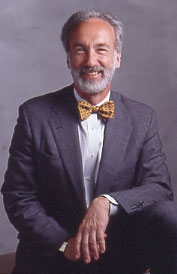By James Huffman
What will come of the presidents of three of America’s most prestigious universities being called on the congressional carpet to explain their responses to Hamas’ brutal assault on innocent Israelis?
Will the resignations of University of Pennsylvania President Liz Magill and Harvard President Claudine Gay mark a turning point for American higher education? Will the leaders of other colleges and universities be encouraged to reflect on how far their institutions have strayed from their historic missions — namely, the pursuit of truth and dissemination of knowledge?
Not if the lesson learned is implementing the policies implicit in the legislators’ questions.
The core questions posed by the congressional inquisitors were two: (1) Why did your university not condemn Hamas’ brutal October 7 assault on innocent Israelis? (2) Does your institution’s code of conduct permit the pro-Hamas demonstrations that occurred?
Implicit in the first question is that there is no acceptable explanation for not condemning Hamas’ actions — that the presidents failed their responsibilities in not doing so. The second question implies that the schools’ codes of conduct should prohibit such demonstrations with severe consequences for violators. If those conclusions were drawn from this unfortunate saga, we would have missed an opportunity for essential reform.
Two deeply embedded developments that have distracted higher education from the pursuit of truth and the conveyance of knowledge are institutional advocacy for favored public policies and the suppression of free expression in the name of student comfort.
Because the universities had previously issued proclamations on the death of George Floyd and the overturning of Roe v. Wade, for example, they were expected to do the same after October 7. But their mistake was not in failing to condemn Hamas. Instead, it was in having embraced a practice of making public pronouncements on matters of public controversy. Had they not already strayed from their truth-seeking mission, the best answer to the House committee’s first question would have been that Harvard, MIT and Penn did not issue statements because they do not take institutional positions on questions of public policy unrelated to the functioning of the university.
They might then have added their reason for maintaining institutional neutrality in response to the second question, explaining why their codes of conduct would permit the pro-Hamas demonstrations. Pursuing truth requires freedom of thought, inquiry and expression not chilled by pronouncements from on high or by suppression of disfavored speech. The three presidents insisted that context matters, and indeed it does. Speech that incites imminent physical harm is different from speech that offends.
Here, the universities have also established precedents that made it difficult for the presidents to do the right thing. Speech codes, safe spaces, trigger warnings all serve to relieve discomfort, not prevent physical harm. Having made student comfort an institutional mission, however, it is entirely reasonable that Jewish students offended by chants of “from the river to the sea” would demand similar protection.
But while Jewish students may take offense at the demonstrators’ words, the mere expression of those words is no more a threat of actual harm than are the many words and ideas previously banned in the name of student comfort. The mistake of all three universities was in restricting freedom of expression in the first place.
Like a warrior waving the scalps of two of the enemy, Rep. Elsie Stefanik trumpeted “Two Down” after Harvard President Gay followed Penn President Magill in resigning. But there is nothing to celebrate in the sad fates of two individuals long immersed in a culture of higher education that elevates indoctrination above the pursuit of truth and comfort above meeting the challenges of open and honest inquiry.
If the lesson learned from the downfall of Magill and Gay is that Penn and Harvard will henceforth be equal opportunity advocates for social causes and non-discriminatory regulators of free expression, the battle to restore our colleges and universities to their historic mission of knowledge production and dissemination will be lost.
Silence is not violence, nor is it indifference. Failure to regulate offensive speech does not endorse the speaker’s message. On the contrary, both are essential to the pursuit of truth. Had the three presidents been able to say that they did not condemn Hamas because, when speaking for the institution, they remain neutral on matters of public concern and that they did not constrain the demonstrators because they embrace untrammeled freedom of expression, they would have been no less condemned but would have stood on two foundational principles that once made American higher education the envy of the world.
James Huffman is dean emeritus at Lewis & Clark Law School in Portland, Ore. He wrote this for InsideSources.com.




